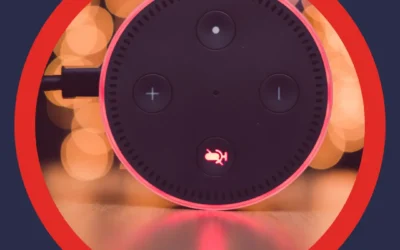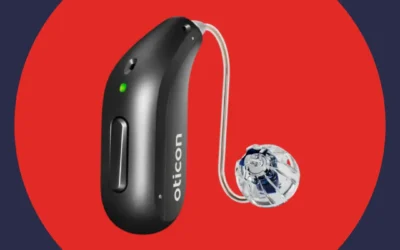Hearing loss affects millions of people globally—and that number continues to rise. Fortunately, it’s not inevitable. While not every form of hearing loss can be prevented, many cases are avoidable with proactive care and lifestyle changes. With the right information and support, you can prevent hearing loss and reduce its impact on your health and well-being.
We believe that every person deserves access to effective hearing care, reliable education, and practical tools. In this guide, you’ll learn what causes hearing loss, how to recognize early symptoms, and what steps to take to protect your hearing throughout your life.
Hearing loss among millennials and Gen Z is increasing at a faster rate than previous generations.
Why Protecting Your Hearing Matters
Your hearing plays a central role in how you connect with others and navigate the world. When hearing starts to fade, even slightly, it can affect your mood, relationships, memory, and daily communication. Over time, untreated hearing loss may lead to more serious consequences such as:
- Social withdrawal and loneliness
- Difficulty at work or in social situations
- Reduced cognitive function and increased dementia risk
- Anxiety, depression, and frustration
- Balance issues and increased fall risk
These outcomes aren’t just frustrating—they’re life-altering. Preventing hearing loss early and managing its effects are essential steps in preserving your independence and quality of life.
Find out more about the comorbidities of hearing loss.
Understanding How We Hear
Hearing is a complex process that involves more than just your ears. It begins when sound waves enter the outer ear and travel through the ear canal, striking the eardrum. The vibrations move through three tiny bones in the middle ear (the malleus, incus, and stapes) into the cochlea in the inner ear.
Inside the cochlea are thousands of tiny hair cells called stereocilia. These cells convert sound vibrations into electrical impulses, which travel along the auditory nerve to your brain. Your brain then interprets these impulses as sounds—speech, music, alerts, and environmental noise.
If the hair cells in your cochlea become damaged—whether from loud sounds, aging, or medical conditions—they do not regenerate. Once those cells are gone, they’re gone for good.
That’s why it’s so important to protect them.
Explore the strange sounds your ears can make.
Types of Hearing Loss: What You Need To Know
There are three primary types of hearing loss, each with different causes and treatment options.
Sensorineural Hearing Loss
This is the most common form. It occurs when the inner ear or auditory nerve becomes damaged. Causes include:
- Long-term noise exposure
- Aging (presbycusis)
- Certain medications
- Illness or infections
- Genetic predisposition
This type is usually permanent but can be managed with hearing aids and other assistive devices.
Conductive Hearing Loss
This type occurs when sound cannot pass through the outer or middle ear. Causes include:
- Earwax buildup
- Fluid in the middle ear
- A perforated eardrum
- Bone abnormalities or ear infections
Conductive hearing loss is often treatable through medication, surgery, or removal of obstructions.
Mixed Hearing Loss
As the name suggests, mixed hearing loss combines elements of both sensorineural and conductive hearing loss. You might experience this if you already have age-related hearing damage and also develop a blockage like earwax or fluid buildup.
Early Signs You Shouldn’t Ignore
Hearing loss often develops slowly. You may not realize it’s happening until it starts to affect your everyday life. Early intervention is key to minimizing long-term impact. Here are common signs to watch for:
- You frequently ask others to repeat themselves
- Conversations sound muffled or unclear
- You struggle to hear in noisy environments
- You notice ringing or buzzing in your ears (tinnitus)
- You turn the TV or radio volume up higher than others prefer
- You feel fatigued after socializing due to concentration
If any of these symptoms sound familiar, schedule a hearing test with a trusted hearing care provider.

Proven Ways to Prevent Hearing Loss and Reduce Its Impact
You can take control of your hearing health starting today. The tips below focus on daily habits, environmental awareness, and long-term strategies that support better hearing and overall wellness.
1. Limit Exposure to Loud Noises
Noise-induced hearing loss is one of the most preventable forms. Exposure to loud sounds over 85 decibels can permanently damage your hearing. The louder the sound, the less time it takes to cause harm.
Everyday risks include:
- Lawnmowers (85–100 dB)
- Rock concerts (110–120 dB)
- Chainsaws and power tools (100–115 dB)
- Fireworks (150 dB)
- Earbuds at maximum volume (over 100 dB)
Tips to reduce your exposure:
- Step away from loud sound sources when possible
- Use noise-level tracking apps on your phone
- Keep music and headphone volume under 60%
- Take “quiet breaks” during loud events
Your ears don’t “toughen up” to sound. If you notice ringing or muffled hearing after an event, you were exposed to damaging noise.
2. Wear Proper Hearing Protection
Whenever you can’t avoid loud sounds, protect your ears.
Types of hearing protection:
- Foam earplugs: Inexpensive and disposable. Reduce noise by 15–30 dB.
- Custom earplugs: Molded to your ears and provide consistent protection. Great for musicians and workers.
- Earmuffs: Cover the entire ear. Ideal for lawn care, construction, or shooting ranges.
- Double protection: Combine earplugs and earmuffs for the loudest situations.
Keep a pair of earplugs in your car, backpack, or keychain. You never know when you’ll need them.

3. Keep Volume Low on Personal Devices
Listening to music or podcasts with headphones is common—but risky. Many people use volume levels that can cause hearing damage within minutes.
How to listen safely:
- Use noise-canceling headphones to avoid increasing volume
- Follow the 60/60 rule: 60% volume for 60 minutes at a time
- Avoid using headphones in noisy places (like buses or gyms)
Choose over-ear headphones rather than earbuds. They create better seals and reduce the need for loud volumes.
4. Prioritize Healthy Circulation
Good blood flow is essential for ear health. The hair cells in your inner ear depend on a rich supply of oxygen and nutrients.
Support circulation by:
- Exercising regularly (even walking 30 minutes a day helps)
- Eating a heart-healthy diet full of leafy greens, berries, and fish
- Managing high blood pressure and cholesterol
- Reducing salt intake
Your ears are part of your body’s vascular system. Healthy circulation equals healthy hearing.
5. Manage Chronic Conditions Like Diabetes
People with diabetes are twice as likely to develop hearing loss. The reason? Poorly controlled blood sugar can damage the nerves and blood vessels in the inner ear.
Protect your ears by:
- Monitoring blood sugar levels closely
- Following your healthcare provider’s treatment plan
- Eating a balanced, low-sugar diet
- Scheduling annual hearing tests
If you have diabetes, make hearing care part of your wellness plan.
6. Quit Smoking and Limit Alcohol Use
Smoking restricts blood flow and increases inflammation. It harms the delicate cells in your ears. Even secondhand smoke is a risk. Excessive alcohol use can damage the central auditory system in your brain.
To reduce risks:
- Seek help from support groups or medical providers to quit smoking
- Avoid exposing children to secondhand smoke
- Limit alcohol to recommended daily limits
These changes improve your hearing and your overall health.
7. Don’t Stick Anything in Your Ears
Cotton swabs are not safe for cleaning ear canals. They push wax deeper and can puncture the eardrum.
Safe alternatives include:
- Over-the-counter wax softeners
- Warm water and a bulb syringe
- Professional earwax removal by a hearing care provider
If your ears feel blocked, get them checked. Never insert objects into your ear canal.
8. Eat for Ear Health
Certain nutrients support healthy hearing. A balanced diet provides the vitamins and minerals your ears need.
Key nutrients include:
- Magnesium: Helps protect against noise damage
- Potassium: Maintains fluid balance in the inner ear
- Folate: Supports blood circulation
- Vitamin B12: Supports nerve function
Add foods like avocados, bananas, spinach, beans, eggs, and fish to your meals regularly.
9. Reduce Stress and Improve Sleep
High stress levels can make tinnitus worse and disrupt blood flow to the ears.
Improve resilience by:
- Practicing mindfulness or meditation
- Doing yoga or breathing exercises
- Getting 7–9 hours of sleep nightly
- Reducing screen time before bed
Lowering stress benefits every system in your body—including your hearing system.
10. Get Hearing Tests Regularly
Routine hearing tests help catch changes before they become bigger problems.
You should get tested if:
- You’re over 60
- You work in a noisy environment
- You have a family history of hearing loss
- You notice symptoms like ringing or difficulty hearing speech
Hearing tests are quick, painless, and informative. They provide a roadmap for your care.
Preventing Hearing Loss in Children and Teens
Hearing loss doesn’t only affect older adults. More young people than ever are showing signs of noise-induced damage. Loud toys, concerts, personal audio devices, and school events all pose risks.
Protect kids by:
- Using volume-limited headphones
- Teaching safe listening habits early
- Providing ear protection for loud events
- Encouraging quiet play and screen breaks
Hearing protection at a young age sets the foundation for a lifetime of better hearing.
If You Already Have Hearing Loss—Act Now
Once you notice signs of hearing loss, don’t wait. Taking action now helps prevent further damage and improves your ability to stay engaged with the world.
Start with:
- A full hearing evaluation by a hearing care provider
- A personalized care plan that may include hearing aids
- Education on assistive technology and communication strategies
Modern hearing aids offer advanced features like Bluetooth, rechargeable batteries, and background noise filtering. They’re discreet and highly effective.
Learn more tips for hearing loss and safety.

The Bottom Line: Prevention Starts With You
You have the power to prevent hearing loss and reduce its impact—starting today. By making small changes in your daily life, you can protect your hearing, stay socially connected, and maintain your mental sharpness.
Don’t wait until hearing loss starts affecting your life. Take control now.
Ready to Protect Your Hearing?
Contact American Hearing + Audiology today to schedule your hearing evaluation. Our trusted hearing care providers will work with you to build a hearing health plan tailored to your needs.
Protect your ears. Protect your future. We’re here to help—every step of the way.



